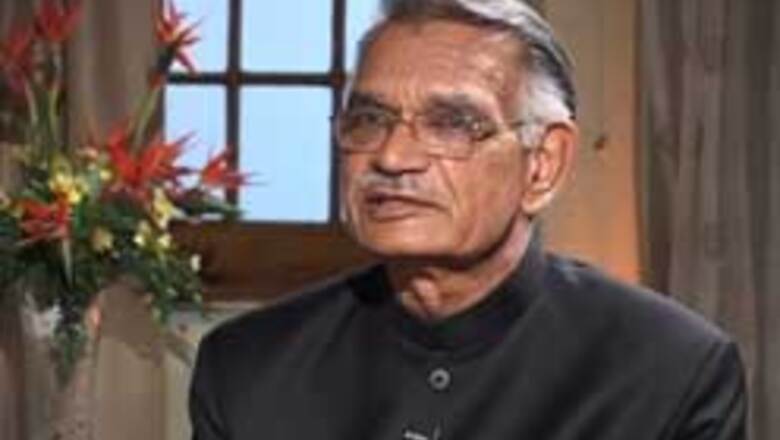
views
New Delhi: Shivraj Patil, who resigned as home minister Sunday following the Mumbai terror attacks, faced constant criticism for his handling of India's internal security during his four-year tenure. Yet he was once a serious contender for Indian presidency.
Patil, 73, took over as home minister, the second most important position in the union cabinet, in 2004, when the Congress-led UPA coalition government took office.
Throughout his stint, several cabinet ministers and even bureaucrats in the ministry felt that he was out of touch on many issues, especially Maoist insurgency in huge swathes of the country.
And during his tenure, terrorist attacks kept mounting across the country.
"He was a good human being and meant well. But as a home minister one needs to be pro-active and in control, which he was not, especially in the face of the deteriorating security situation," said a senior intelligence functionary who often interacted with Patil.
Many urgent steps were required to improve policing and usher in reforms but Patil failed to do that.
The home ministry came under attack for failing to fill up police vacancies, adequately staffing the Intelligence Bureau and for not improving hinterland and coastal security.
A former Lok Sabha speaker, Patil lost the 2004 parliamentary election from Latur constituency in Maharashtra. Thanks to his known proximity to Congress president Sonia Gandhi, he was elected to the Rajya Sabha in July 2004.
In 2007, Patil was a serious contender for the post of president after A P J Abdul Kalam retired. However, Communist parties that supported the government then were vehemently against him.
This year, the string of bombings that ripped through several cities prompted calls for his resignation but Patil survived. However, the terror attacks in Mumbai proved to be the proverbial last straw.
Highly placed sources told IANS that Prime Minister Manmohan Singh was "disappointed" that the home ministry failed to prevent Mumbai from being held ransom for three days and made his displeasure very apparent.
PAGE_BREAK
"Manmohan Singh was personally monitoring operations in Mumbai and the fact that Patil was not called to the high-level security meeting in the aftermath of the Mumbai operations was enough indication (that he was on his way out)," said a cabinet source.
Ironically, Patil had two years ago warned of terror groups using the sea route to strike at vital installations in India.
In his annual address to police chiefs in November 2006, Patil detailed the new forms of terror that the security establishment had to contend with and pointed out to groups using "the sea route to infiltrate India".
However, nothing much seems to have been done about it.
Terrorists who India says came from Pakistan sneaked into Mumbai by boat Wednesday night and killed 183 people, including 22 foreigners, leaving the country stunned.
Even as security forces fought the terrorists who took over two luxury hotels and a Jewish centre with hostages, Patil came under attack for revealing publicly the number of commandos and when they left New Delhi for Mumbai.
Patil's resignation is seen as a damage control exercise by the Congress-led government.
"Public outrage was mounting after the Mumbai attacks and there had to be some accountability," a cabinet minister IANS.
Many cabinet members had said that "strong action" was required at the highest level following the most audacious terror attacks India has ever seen.
Patil's resignation came amid elections in six states whose outcome is expected to have a bearing on Lok Sabha polls due early next year.



















Comments
0 comment